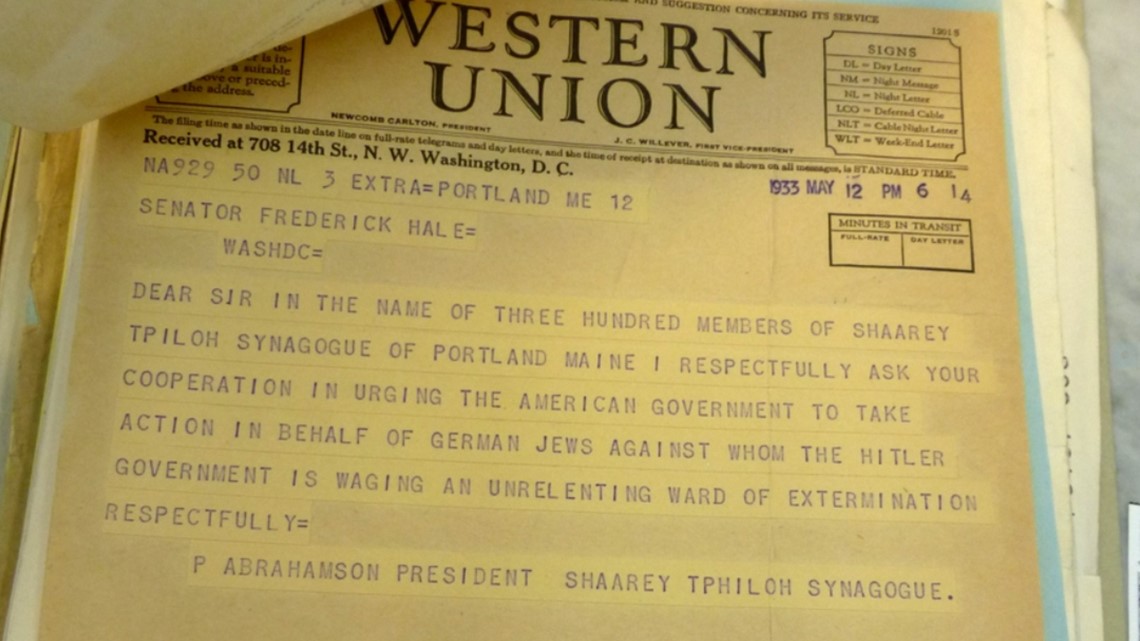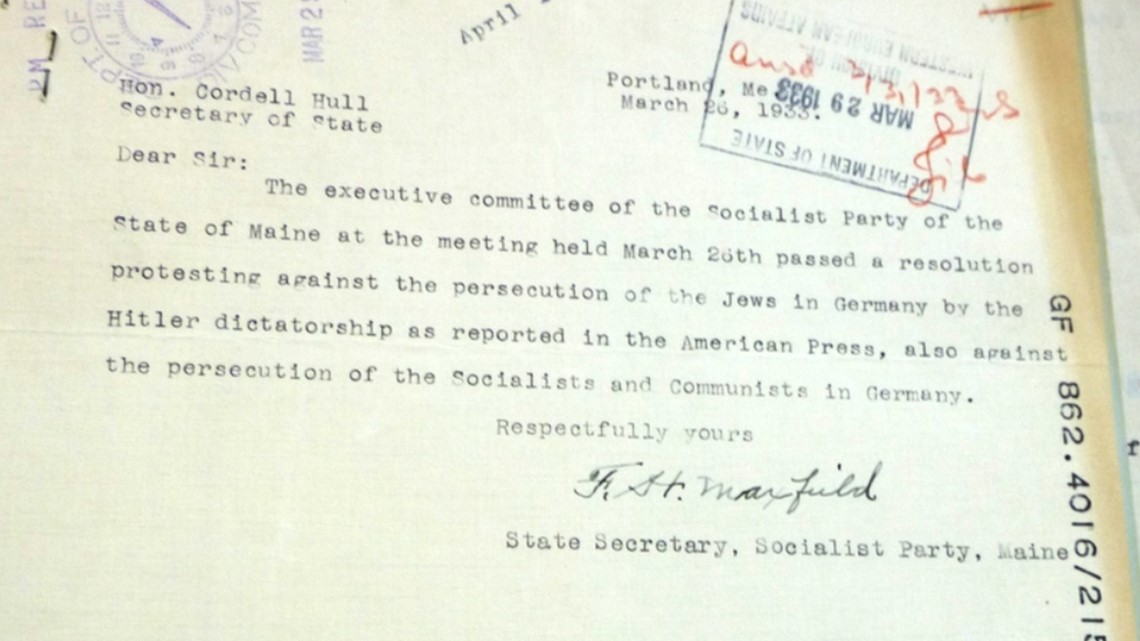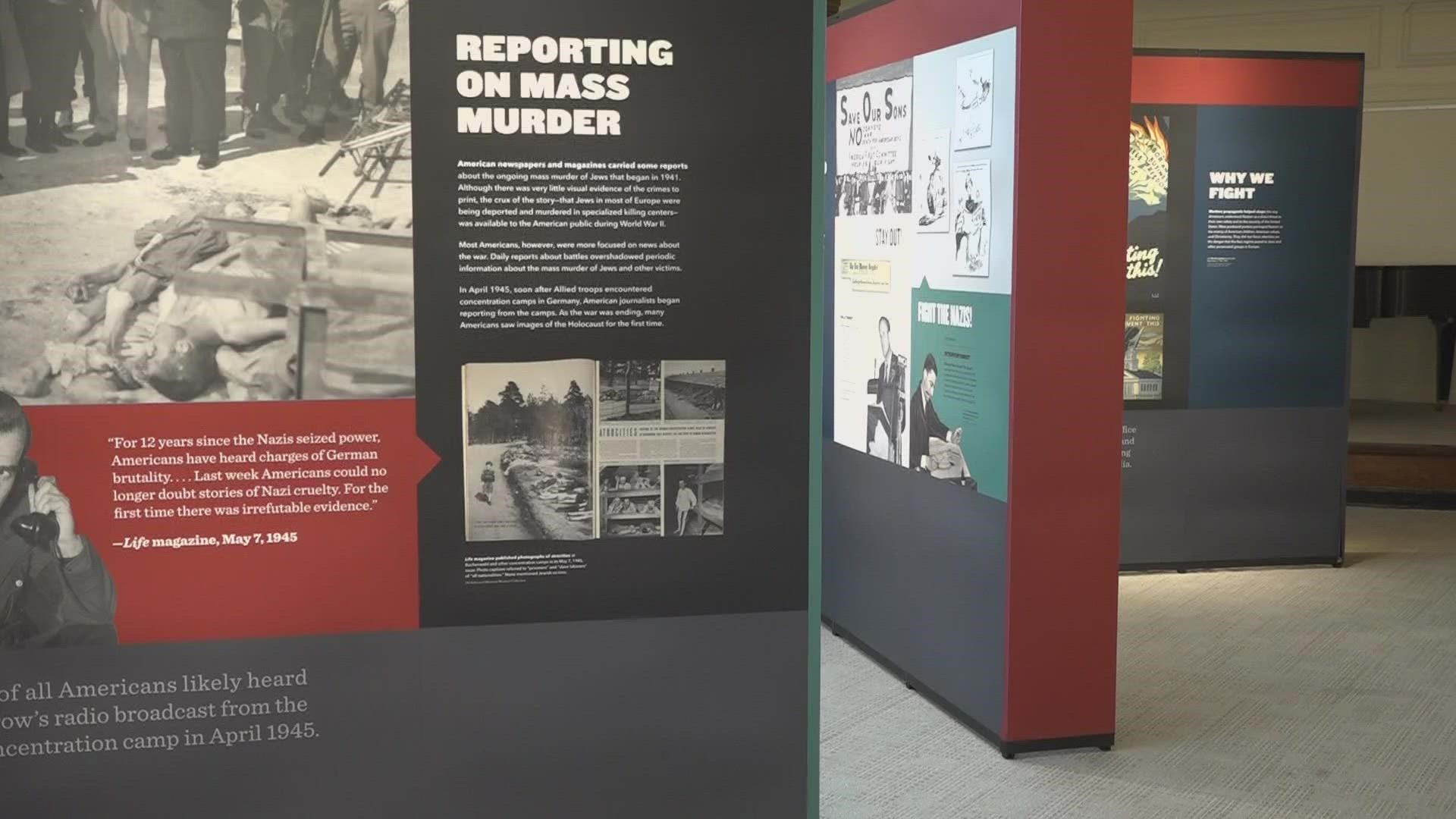BANGOR, Maine — The traveling exhibit "Americans and the Holocaust" has opened at the Bangor Public Library, the only place in New England where it can be seen.
The exhibit focuses on what the United States knew about the Holocaust and World War II as they unfolded, the pressures that distracted many, and the reactions that followed.
"Americans and the Holocaust" was put together by the United States Holocaust Memorial Museum and the American Library Association.
Museum historian Rebecca Erbelding says the exhibit is a good opportunity to teach younger generations about the Holocaust so that similar events don't ever happen again.
"The issue of antisemitism being on the rise is certainly incredibly concerning," she said. "The idea that students need to learn about the Holocaust is obviously something that we feel very strongly about, and this exhibition gives people the opportunity to do so."
The exhibit touches on different themes in American history, the Great Depression, isolationism, xenophobia, racism, and antisemitism, and how those influenced decisions made by different entities.


"As soon as Americans read about the persecution of Jews in Germany, there is a mass protest movement ... there are rallies and marches in at least 65 different cities," Erbelding said
Among letters on display are those from Bangor, Waterville, Portland, Belfast, and Rockland that were sent to White House officials in 1933, right at the rise of Hitler's Nazi Germany.


Erbelding says as Hitler rose in power, Americans were focused on the Great Depression.
"There really isn't a lot of pressure for increased immigration, or for opening America's doors even further," the historian added.
Erbelding explains that towards the end of the war in 1944, the United States established a policy of 'rescue and relief.'
"They may have saved tens of thousands of lives in the final year of the war," she said.
The exhibit includes articles published in local newspapers, educational videos, and images of propaganda used to manipulate people on the realities of the Holocaust.
"It doesn't have the kind of photos people associate with the Holocaust museum, in Washington, D.C., that primarily focus on the concentration camps," said Treat.
Treat says this display is family-friendly and free of charge.
"I think learning about the Holocaust, learning about antisemitism, allows us to recognize patterns, to understand the fragility of democracy, to understand the importance of standing up when we see something that is wrong, to understand what happens when hate speech is allowed to flourish, so when we can learn about that through a historical even we are able to recognize patterns in our own lives and hopefully disrupt something like the Holocaust from ever happening again," Erbelding said.
People can visit the exhibit until January 15th. There are also opportunities for teachers to take their class of students to the exhibit, walk around it, and discuss it. Here's the field trip application link.
Click here, for a list of other programs that the Bangor Public Library is putting together while the Holocaust exhibit is in town.

